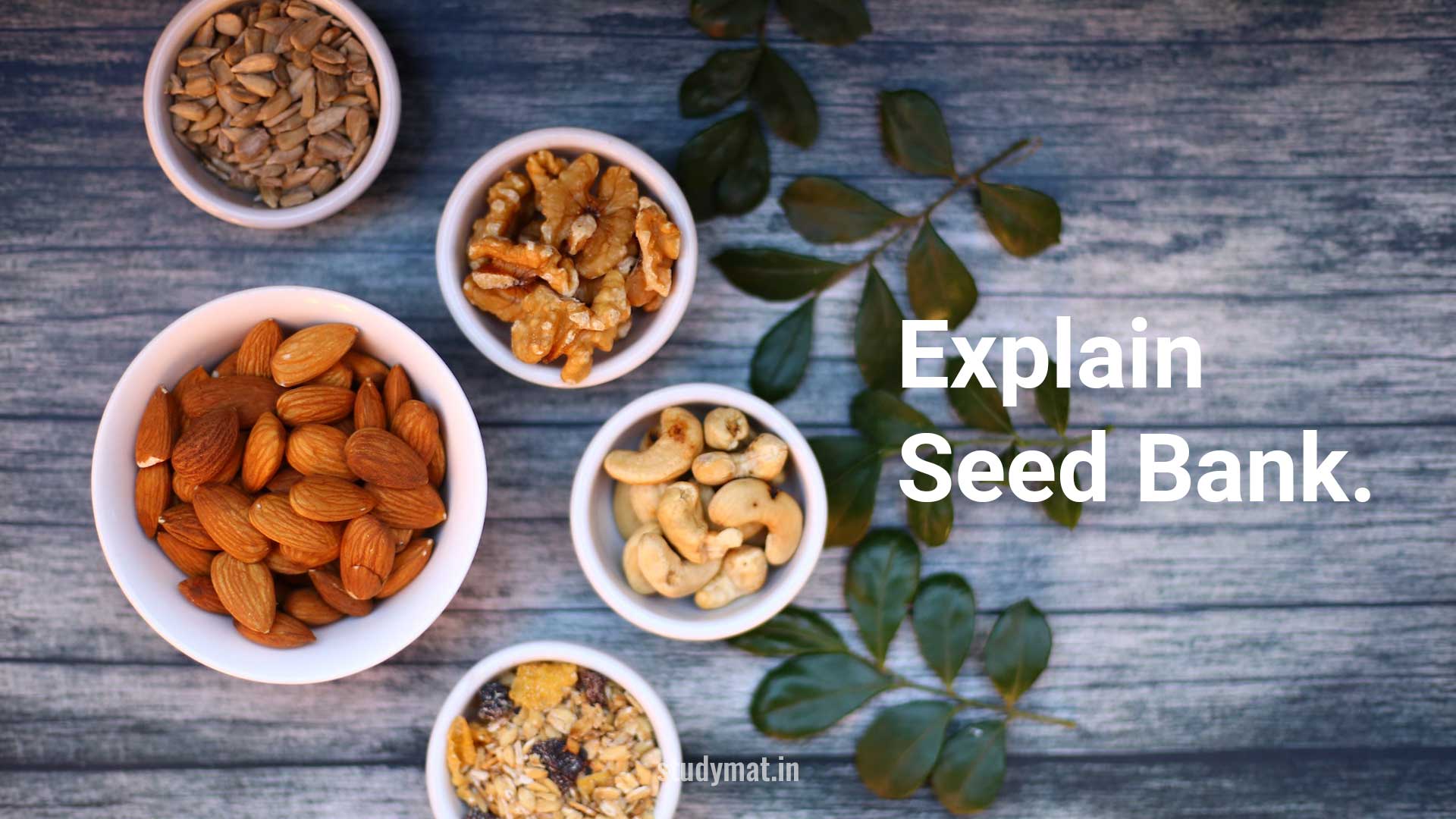In this article, we will Explain the following term Seed Bank.
What do you mean by Seed Bank?
A Seed Bank is a place where seeds are collected, stored, and preserved for the future. It’s like a special bank that saves seeds instead of money. Seeds from various plant species are carefully collected and stored in a controlled environment to maintain their viability and prevent them from losing their ability to grow into new plants.
Seed banks play an essential role in conserving plant biodiversity and protecting plant species that may be at risk of extinction. They act as a backup to ensure that even if plants are lost or habitats are destroyed, their seeds can be used to restore and reintroduce these species in the future.
Read Also:
Explain the Relevance of Wetland with Respect to Nature Reserves at the Global Level.
Seeds in a seed bank are kept in cool and dry conditions, often in special containers or refrigerators, to help them remain dormant and viable for longer periods. They are carefully labelled and catalogued, making it easier to find and use them when needed.
By preserving a wide variety of seeds, seed banks help safeguard our plant heritage and ensure that valuable plant species are not lost forever. They provide a valuable resource for scientists, researchers, and conservationists to study, understand, and protect plants for the benefit of future generations.
FAQ:
- What is the seed bank called?
- What are seed banks?
- What is the importance of seed bank?
Follow Us:
If you like this article, you can Follow us on Facebook.
Also, you can Join our Official Facebook Group for QnA Sessions and Discussions with the worldwide IGNOU community.

